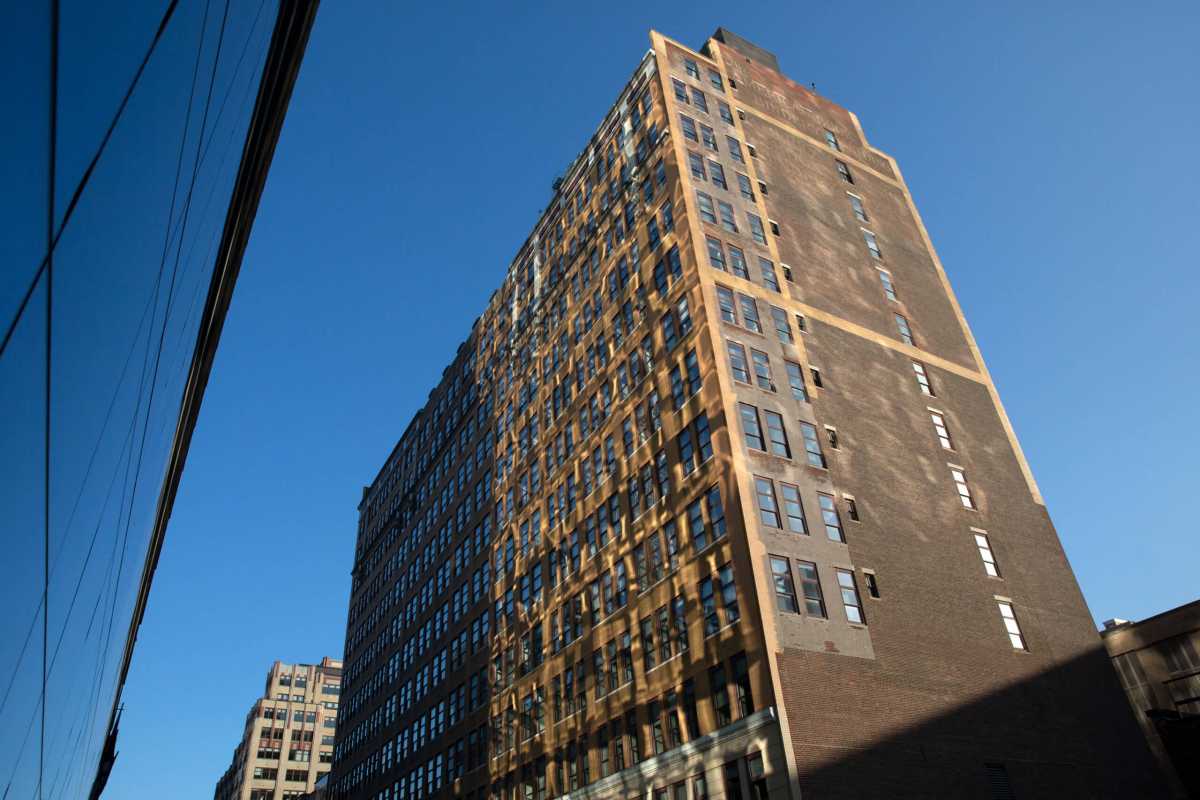By Gabriel Sandoval, THE CITY
This article was originally published on by THE CITY
An offer of temporary “free” housing brought a sigh of relief to 13 dorm workers late last month after they learned they would lose their jobs, health insurance and homes in the residence halls of the public Fashion Institute of Technology in Manhattan.
But the workers, some of whom are losing jobs that paid less than $17,000 a year, have since grown disillusioned after discovering the school administration wouldn’t be delivering free housing after all.
That’s because the Chelsea living space offered to the soon-to-be unemployed New Yorkers would be booked as a form of taxable income, leaving them liable for taxes on units with rents ranging from about $2,600 to $4,800 a month.
FIT administrators sent the workers individual housing agreements and gave them until Nov. 11 to review, sign and return them. Their deadline later got bumped to Monday.
“Unfortunately, we feel like we have no choice but to sign the damn paper — because where else are we going to go?” said a worker who requested anonymity out of fear of retribution from the State University of New York school administration.
A FIT spokesperson maintained that the housing is “free of charge and similar to what they had previously,” and includes electricity, heat, water, Wi-Fi and trash services.
“In any instance, FIT is required by law to report the value of these rooms along with the other services provided to a non-employee, to the IRS,” said the spokesperson, Beth Mitchell. “The recipients also have an obligation to report these benefits to the IRS.”
But since their employment has changed, so has their housing benefit, she said.
“Housing was not recorded previously as income because these individuals were required to live on campus as part of their employment, which is no longer the situation,” Mitchell continued.
‘Scared and Frustrated’
Among the 13 laid off are part-time and full-time workers, FIT alumni, parents of young children and a campus Residential Life veteran with more than 20 years on the job.
Workers told THE CITY that at least one person is going to decline the offer, regardless of any potential last-minute changes. The rest have yet to decide what they’ll do when the deadline comes Monday, they said.
“I’m scared and frustrated and incredibly overwhelmed,” another worker said. “It feels like we’re being forced into taking this contract and we’re not able to get all the answers that we need.”
Puzzled by multiple provisions in the “Separation Agreement and Release,” the workers have been frantically emailing questions to a FIT administrator in the human resources department, but still have several inquiries outstanding.
The workers have asked how accepting the housing offer would affect their ability to receive state unemployment insurance. And their requests to meet virtually with FIT administrators have been turned down.
“There is a consensus that the terms reached reflect the best possible offer that can be extended,” Cynthia Glass, FIT’s vice president for human resources, wrote to workers last Wednesday in an email obtained by THE CITY. “It is for that reason that the administration believes that further discussions would not be productive.”
The layoffs come as the number of students living on campus has plummeted due to the pandemic, leading to roughly $32 million in lost revenue.
On Wednesday, the state Public Authorities Control Board will vote on a plan for the state Dormitory Authority to refinance $39 million in FIT residence hall debt to make payments more manageable.
Meanwhile, FIT President Joyce Brown resides in a full-floor penthouse in one of the campus’ four residence halls in Chelsea, fulfilling a contractual obligation. She pays no rent but is obligated to pay taxes on the value of the benefit.

.
Paging Maloney
The SUNY campus had informed the workers in mid-October that a pandemic switch to mostly remote learning led to a steep decline in the number of students living on campus, resulting in a loss of $32 million in revenue.
They were told that their jobs would be eliminated after Nov. 30. Then they will lose their health insurance and homes by the year’s end.
A day after THE CITY reported on their plight last month, FIT offered them a temporary reprieve.
In an Oct. 27 email to workers, Catherine O’Rourke, interim vice president for enrollment and student success, explained that FIT’s leadership had reviewed the workers’ pleas for a housing extension and decided to supply them “comparable on-campus accommodations until no later than May 31, 2021.”
“An agreement is being drafted that will outline the terms and conditions of this arrangement which will allow the college to extend your access to free housing and utilities after you are no longer an employee of the college,” O’Rourke wrote.
That day, before receiving the housing offer, a worker reached out to Rep. Carolyn Maloney (D-Manhattan/Brooklyn/Queens) for help.
That support came two days later, after the workers received the housing offer.

In a letter dated Nov. 29, Maloney wrote to Brown explaining that it was “highly problematic” in the midst of a pandemic for FIT to lay off, “evict” and terminate the health insurance of these workers, some of whom earned only $1,400 per month.
“While the legal peculiarities of this situation, in which housing and employment are inextricably linked — may fall outside the purview of the Tenant Safe Harbor Act, it certainly violates the spirit of that legislation meant to protect New Yorkers from homelessness during this public health and economic crisis,” Maloney wrote.
Maloney also urged Brown to reconsider her decision to end the workers’ employment, housing and health insurance, and requested that FIT “open a direct dialogue with these individuals.”
Maloney’s press office didn’t respond to multiple requests for comment from THE CITY.
Missing the Market
The workers said they never paid taxes on their housing, which was provided for free as part of their compensation package, they said.
Double apartments are designated for the laid-off part-timers, valued at $2,590 a month. Quad apartments, valued at $4,782 a month, have been earmarked for laid off full-timers.
If a full-time laid off worker accepts the housing offer and stays until the end of May, for example, they will accrue $28,692 in income. The worker will need to report the housing as income when they file their taxes next year and in 2022. The amount of taxes that the worker will owe depends ultimately on how much they earned in those years.
Workers question the “market rate” of the FIT housing, suspecting it should cost less because of the pandemic’s impact on Manhattan real estate.
The real estate firm Douglas Elliman’s latest monthly report showed earlier this week that market rents in Manhattan continued to plunge into October.
One employee emailed Glass on Wednesday, asserting that the rate quoted is “much higher” than what can be found for the area in online searches.
Mitchell said that “the housing agreement that has been developed is consistent with the official rental rates for student housing at FIT.”
One full-time worker expressed disgust at FIT’s treatment of employees who dedicated their professional lives to helping students overnight, on weekends and holidays.
“I’m hurt more than anything by this organization that I love so much,” the worker said.
THE CITY is an independent, nonprofit news outlet dedicated to hard-hitting reporting that serves the people of New York.






































